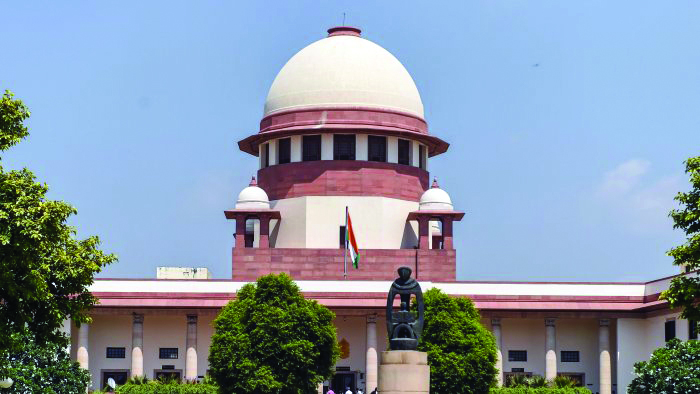SC stays NGT order asking L-G to head high-level panel on Yamuna

New Delhi: The Supreme Court on Tuesday stayed a National Green Tribunal (NGT) order asking Delhi’s Lieutenant Governor to head a high-level committee constituted to deal with issues concerning rejuvenation of Yamuna river.
A bench comprising Chief Justice D Y Chandrachud and justices PS Narasimha and Manoj Misra agreed to hear the Delhi government’s plea against the January 19 order of the NGT and issued notice to the petitioner on whose application the tribunal had passed the order.
The NGT had constituted the high-level committee of authorities concerned in Delhi where pollution of Yamuna is higher (about 75 per cent) compared to other river basin states, and said, “We request the Lieutenant Governor, Delhi, who is chairman of DDA and administrator of Delhi under Article 239 of the Constitution, to head the committee.” Senior advocate Abhishek Singhvi, appearing for the Delhi government, referred to two paragraphs of the NGT order.
“Issue notice... There shall be a stay of the operation of the direction issued on January 9, 2023 by the National Green Tribunal to the extent that the Lieutenant Governor has been directed to be a member of the committee and to chair it,” the apex court said, adding it is not staying the rest of the order.
Noting that substantial work remains unexecuted for the rejuvenation of Yamuna, the NGT had formed the committee and requested the Delhi L-G to head the committee.
Contending that the L-G is only a “figurehead” except for three subjects — police, public order and land — the Delhi government’s plea before the top court has sought directions to set aside the NGT’s order.
Referring to the recent judgement of the top court on the administrative services row between the Centre and the Delhi government, the plea stated the effect of the NGT’s orders cannot be to confer executive powers on an authority that cannot, under the constitutional scheme, be conferred on it and is instead vested with the elected government.
“It is submitted that the issues concerning the present appeal are within the domain of the legislative powers conferred upon the Legislative Assembly and do not fall within any exception as laid down in the Constitution. “In light of the above-settled position of law, affirmed most recently by this Court in Civil Appeal 2357 of 2017, the order of NGT is legally not tenable,” the petition said.
It said remedial steps as suggested by the NGT such as using treated water for agriculture, horticulture or industrial purposes, preventing discharge/dumping of any waste, protecting of flood plain zones,
etc are all which require budgetary allocations that are cleared by the legislative assembly and so the role of the elected government becomes extremely necessary.
“The elected government is keen to work on the issue of making Yamuna a clean river free from any kind of pollutants and to allocate the necessary funds, however, the present scheme under the impugned order sets up a committee headed by an unelected figurehead and side-lines the elected and popularly accountable government of the NCTD,” the plea said. “While the appellant acknowledges the need for inter-departmental coordination and cooperation to ensure the cleaning of the Yamuna and for remedial measures in that regard, the appellant is aggrieved by the executive powers conferred on the Lt. Governor vide the impugned order over areas in which only the elected government of the NCT of Delhi enjoys competence,” it said.
Meanwhile, Saurabh Bharadwaj said the Supreme Court’s stay on the NGT order forming a high-level committee for Yamuna cleaning is a “huge message” for L-G V K Saxena. Asked about the development, Bharadwaj said Saxena’s working style is “contradictory”.
“(Activist) Medha Patkar filed a case against him and he said he is the L-G and should be given immunity from the trial. A governor and the president are given immunity because they do not enjoy executive powers and are just a rubber stamp. “In front of the NGT, the L-G said he has executive powers. The SC has now said he does not have the powers to direct officials. It is a huge message to the L-G and his favourite officials by the Supreme Court,” the AAP leader said at a press conference here.



